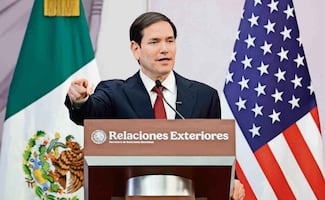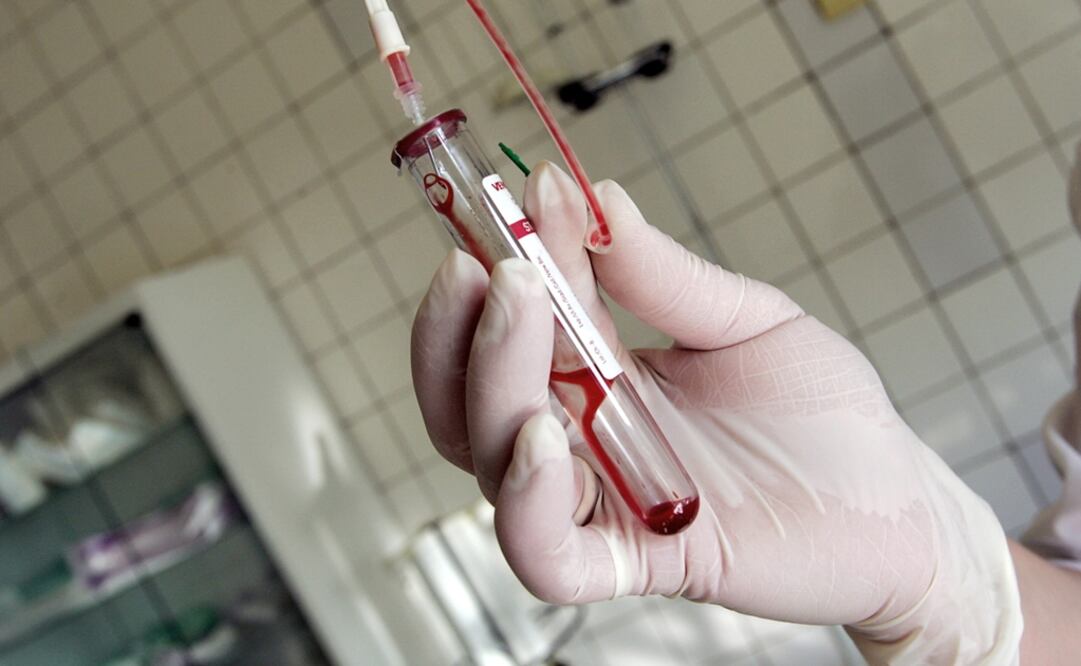Más Información

EU lanza ataque contra objetivos del Estado Islámico en Siria; Trump dice que es "represalia muy seria"

Clinton, Jagger y Michael Jackson aparecen en archivos de Epstein; pesquisa no es sobre el exmandatario, dice vocero

Corte Interamericana responsabiliza a México por feminicidio de Lilia Alejandra García Andrade; su madre ha luchado desde 2001

"Queremos cerrar este capítulo", dice Salinas Pliego al SAT; esperarán a enero a conocer fundamentos legales de adeudo fiscal

Marco Rubio destaca labor de seguridad de México; "están haciendo más que nunca en su historia", afirma

Hallan cuerpos en finca que ya había sido cateada en Silao, Guanajuato; suman 7 personas encontradas en menos de tres semanas
Hundreds of people living with HIV in Mexico may have gone without life-saving treatment for weeks, health advocates said on Tuesday , while welcoming announcements from the Mexican government that it was working to resolve the drug shortage.
The announcements followed a months-long outcry from activists, health experts and people with HIV that a drug shortage was imminent because of changes in the way the government bought medicines.
“(Authorities) have felt the pressure of the media, of civil society associations and they had to respond in some way,” Aaron Rojas, program manager at Inspira Cambio , a local HIV organization, said.
“Now what we have to do is ensure that those who are in charge of all these processes are really aware of what a (drug) shortage implies and why they should be doing the purchasing in a timely manner,” Rojas said.
Mexico’s health ministry
said on Monday that it would address the lack of HIV drugs wherever it had been reported.
The health secretary also said that there was enough medication to cover patients until new supplies of drugs could be purchased, and if any specific medicine did run out, patients would be given an equivalent or superior regimen.
“The instruction is not to suspend treatment for any of the 97,000 people who receive medication to control HIV infection ,” it said in a statement.
Also on Monday, the health ministry in Mexico City assured users of its two HIV-focused public health clinics that it had a sufficient supply of drugs, and that it would “guarantee distribution for patients”.
Before the recent change in the way medicines are bought, the National Centre for the Prevention and Control of HIV/AIDS (Censida) had overseen the purchase of HIV drugs for patients in the “ Popular Insurance ” health program.
But in March, the Mexican government announced that drug purchases would be overseen by the Finance Ministry , as part of President Andrés Manuel López Obrador ’s efforts to centralize government spending and root out graft.
These bureaucratic changes caused a delay in drug buying, according to advocates, resulting in clinics across Mexico being left without certain medicines to treat HIV, health advocates said.
The shortage is a serious concern in a country where, as of 2016, there were some 220,000 people living with the disease, according to the United Nations.
Many in the López Obrador administration were unaware of the public health crisis that a drug shortage could cause, health advocates said.
“Until last week, there was really no information in the upper echelons of government on the level of emergency that not having enough medicines could mean,” Jorge Diaz , a legislative aide who is HIV+, told the Thomson Reuters Foundation .
“There was a bit of a breakdown in communication, and if it hadn’t been for the actions of organizations and activists who understood what was going on, (the crisis) never would have come out last week.”
With assurances from authorities at all levels that the drug shortage will be solved, advocates say they are increasingly confident that the López Obrador administration is finally taking the issue seriously.
But in the meantime, hundreds of people could still be left without drugs while the medicines are bought and distributed, and also face considerable health impacts as a result of interrupting their treatment.
“Until now... there are only declarations,” said Diaz. “I think there is a pretty clear plan for the purchase of medicines. But that doesn’t resolve the crisis.”
dm
Noticias según tus intereses
[Publicidad]
[Publicidad]









